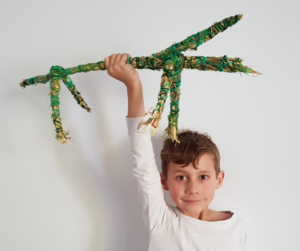
Kids need to try new things in order to grow into confident adults and there are many things you can do to help your kids to keep trying without taking over. Sometimes, kids give up too soon on something that interests them. Here are some strategies for helping kids stay motivated and interested in learning.
Self-esteem is the confidence we feel in ourselves. It’s our sense of worthiness and value. We all need to feel good about ourselves. The way we see ourselves affects the way others see us. If we think we aren’t good enough, we won’t try hard enough to improve. This can lead to low self-esteem.
The way we talk about our children affects their behaviour. We need to start talking about failure and mistakes early on. It’s important to encourage your child to try new things and not give up if they fail. This helps them develop resilience and build confidence.
Children with healthy self-esteem do not define themselves by their failures, their mistakes or what others think of them. Unfortunately, some children, like many adults have low self esteem which will result in following behaviours:
- Avoiding activities or trying new things;
- Asking for help to do something rather than trying;
- Having BIG emotional reactions when they make a mistake or things go wrong;
- Being highly perfectionistic and self-critical;
- Having a high need for approval and reassurance; and
- Taking on board what others think about them – good and bad.
How to help kids to keep trying?
It can be very frustrating and tiring for you as a parent especially because you are probably spending a lot of time and energy being their personal cheerleader and wishing they saw themselves as everyone around them does.
Help your child find their inner Strength Hero
Their strengths are what makes them unique and special. An easy way to identify strengths is to think about what they do well or enjoy. For example, if they can name every dinosaur that may mean they are curious and have a love of learning. Develop their strengths by creating opportunities to use them more.
Role Model how you keep trying
Make sure you share your mistakes with your child. One of the biggest predictor of a child’s ability to develop a growth mindset and keep trying is their ability to tackle challenges to deal with mistakes. This really helps reinforce that mistakes are how we learn.
Teach your children that it is normal to feel emotion
In our “happiness” obsessed society it can be normal for us and our kids to feel we are not normal if we are having a bad day. Dr Russ Harris, the author of the Happiness Trap makes the point that if you are going to live a meaningful, and dare I say normal life, you will experience a whole range of emotions. Share your emotions with your child. For example, if you are nervous about doing a presentation for work let them know. By sharing how you feel and how you manage and cope you help normalise emotions.
Equip your child with skills to deal with BIG emotions
When your child does feel emotion don’t try and make them stop feeling it. The reality is you can’t. Emotions will come and they will pass. You can help them breathe to calm down and just sit with it. You may give them a BIG hug to get a DOSE of oxytocin and resilience and then help them by asking them to admit or acknowledge the emotion: “You seem really angry. Is that how you are feeling?” Once they are calmer, they are more likely to keep trying. To learn more about supporting emotional regulation read here.
Develop your child’s growth mindset
A growth mindset helps children view mistakes as opportunities to learn. A growth mindset is one that is optimistic. For example, when a child makes a mistake instead of giving into the normal emotion and automatic negative thoughts that come along they can turn those thoughts into performance enhancing thought. “I can’t do this” becomes “This is really hard and I need to keep trying”
Reward effort with praise
Praise children when they do well at something. This will encourage them to continue doing what they’re good at. It also helps them develop self-esteem by showing them that they’re capable of succeeding.
Let your child try again
This approach helps children learn to take risks and makes them feel more comfortable when they fail. It also teaches them to persevere through challenges.
Don't give up too soon.
If your child is having trouble with something, encourage them to not to give up too quickly. You can try a coaching approach by helping them reflect. Questions like: What have you tried? What is causing problems? Is there anything you can do to make things easier? What could you do now? You will often find when your child has an opportunity to think and reset they will discover new ways to overcome obstacles and keep trying.
Don't rescue your child
Finally, let your child make mistakes instead of jumping in fix everything. It can be hard when your child is displaying BIG emotions but by helping them learning how to deal with mistakes you are equipping them with skills that they will be able to cope with changes that life throws them.

We teach kids aged 6-12 skills for life to help kids keep trying. Our art and play workshops have a dose of resilience that gives them skills to think with a growth mindset so they can deal with mistakes and life’s challenges. Our school holiday workshops include half day, full day and 2 day art classes for kids and parent and children classes. For current classes visit upcoming workshops
